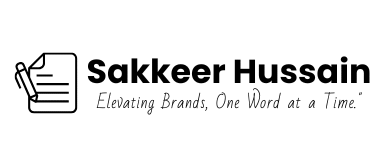Why You Need a Personal Website (And How to Create One)

Introduction
In today’s digital age, having a personal website is no longer just for techies or creatives. Whether you’re a student, a professional, a freelancer, or an entrepreneur, a personal website is one of the most powerful tools you can have to build your online presence, showcase your skills, and stand out from the crowd.
What Is a Personal Website?
A personal website is a digital space where you can introduce yourself to the world. It usually contains:
- A homepage with your photo and short bio
- An “About Me” section
- A portfolio or project page
- Your resume or CV
- Contact information
- Blog or articles (optional)
Why You Should Have a Personal Website
1. Stand Out Professionally
Recruiters and clients often Google your name before hiring or collaborating with you. A personal website ranks higher than social media profiles and gives you full control over how you’re represented online.
2. Build Your Personal Brand
Your website reflects who you are. It helps you craft a consistent, professional image that communicates your values, skills, and personality.
3. Showcase Your Work
A personal website allows you to share your work, whether it’s writing, photography, design, coding projects, or business ventures. It acts like a living resume.
4. Increase Credibility and Trust
Having your own domain name and a well-designed website instantly increases your credibility. It shows that you are serious about your career or business.
5. Create Networking Opportunities
When people visit your website and like what they see, they may reach out for partnerships, job offers, or freelance gigs.
What to Include on Your Personal Website
- Your Name and Photo: Make it personal and relatable.
- Professional Summary or Bio: A few lines about who you are, what you do, and what you’re passionate about.
- Resume/CV Download: Make it easy for people to learn more about your experience.
- Portfolio or Projects: Show off your best work.
- Testimonials or Reviews: Optional, but adds social proof.
- Contact Form or Email: Let people reach you easily.
- Social Media Links: Connect your LinkedIn, GitHub, Instagram, or any relevant platform.
Tools to Build Your Personal Website
You don’t need to be a coder to build a personal website. Here are some popular tools:
- WordPress – Highly customizable and ideal for blogs and portfolios.
- Wix or Squarespace – Drag-and-drop builders with sleek designs.
- Webflow – Great for designers and creative professionals.
- GitHub Pages – Perfect for developers and coders.
- Carrd – Simple one-page website builder, great for minimalists.
Tips for a Great Personal Website
- Keep the design clean and easy to navigate.
- Use a professional-looking domain (e.g., www.yourname.com).
- Make it mobile-friendly.
- Update it regularly with new projects or blog posts.
- Use good-quality images and write clear, concise content.
Conclusion
A personal website is one of the best long-term investments you can make in your personal and professional growth. It gives you visibility, credibility, and a central hub to showcase everything you’re proud of. Whether you’re looking for a job, clients, or simply want to share your journey, your personal website is your digital home.

